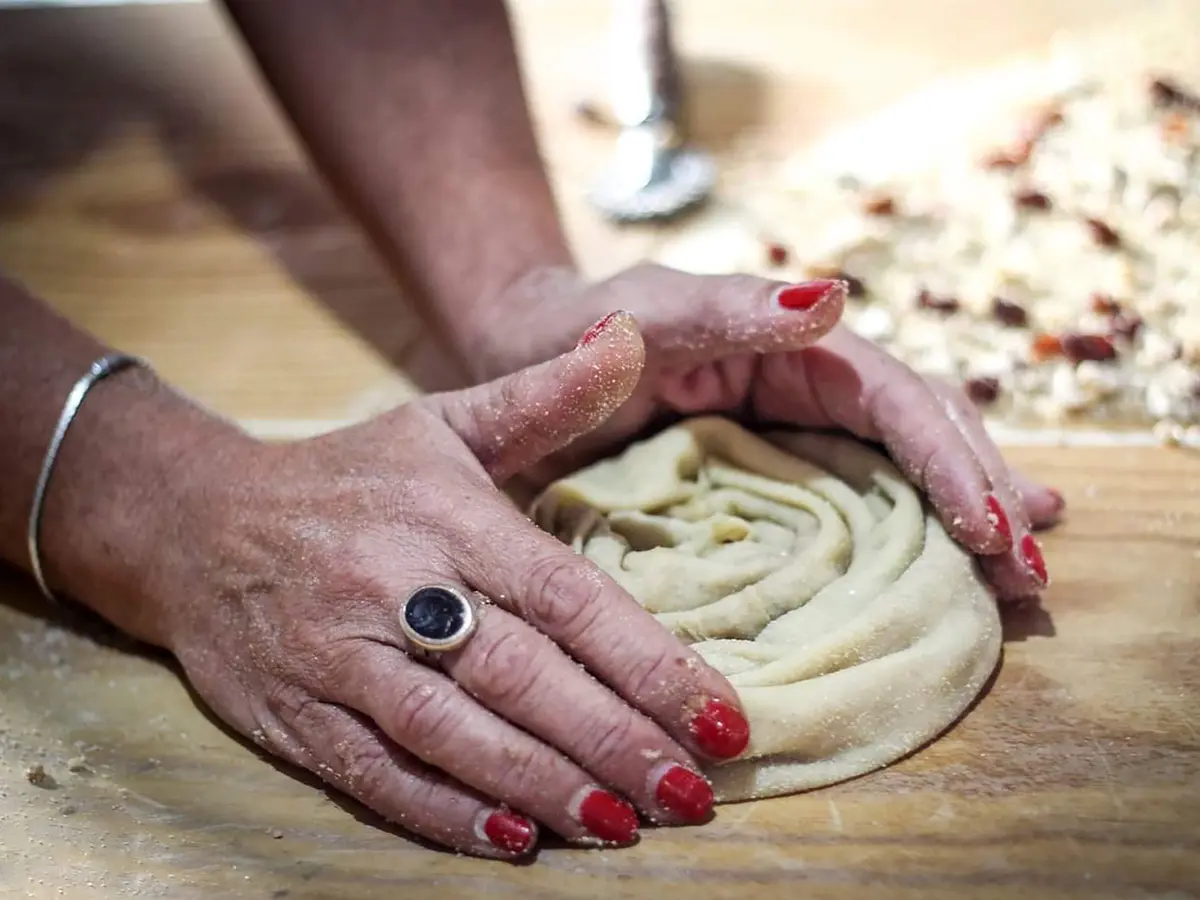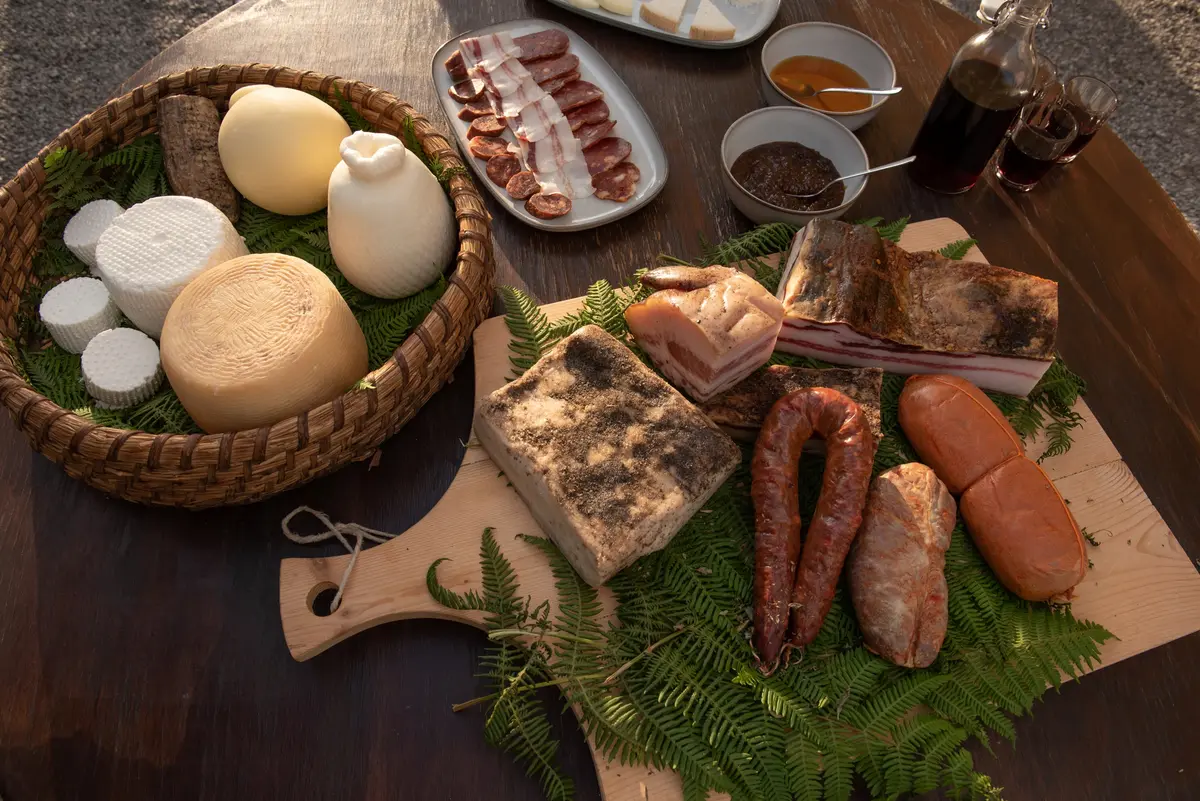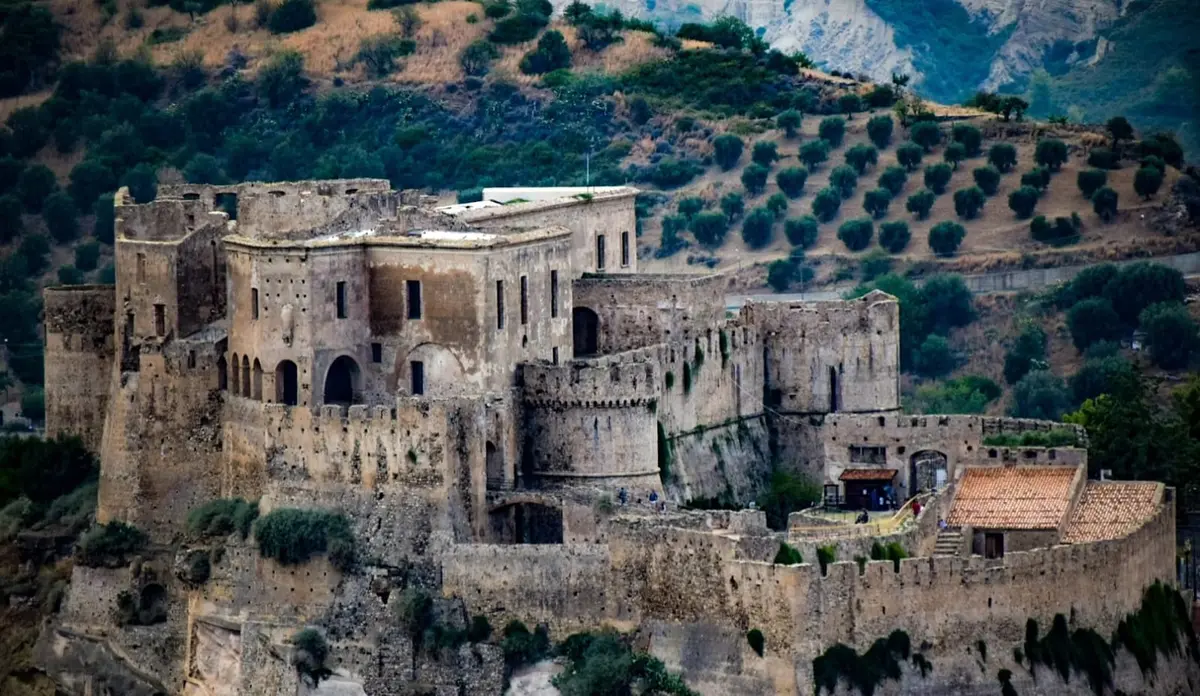A sensorial journey among the Lemons of Rocca Imperiale
Scents, colours and flavours of a lemon-flavoured PGI itinerary

Food and wine
Regione Calabria
A land of some of the most delicious citrus fruits in the Mediterranean, Calabria is an explosion of colours, scents and bittersweet flavours that ripen in the sunshine of the Rivieras, from the Tyrrhenian Sea to the Ionian Sea.
Among the latter, the Lemons of Rocca Imperiale PGI, on the Costa degli Achei in the province of Cosenza, are a guarantee of goodness and health all year round, as well as a beautiful scenic sight and one of the most important and profitable crops in the area.
Ready to enjoy a fresh lemonade in Rocca Imperiale?
Rocca Imperiale and surroundings
An area literally kissed by the sun, that of Rocca Imperiale, which by virtue of its favourable microclimate produces exceptional fruit in a truly evocative landscape setting. This is why tasting the Rocca Imperiale Lemon means tasting an authentic piece of this land.
The "fortress" proper, soars on the hilltop of the old town, and is identified in the monumental geometry of the Swabian Castle, at the foot of which the entire town is arranged like a nativity scene.
Built by Emperor Frederick II of Swabia, thus among the Frederician castles in Calabria, the fortress was defended by archers and crossbowmen who lurked behind the loopholes and battlements. During the Bourbon period, the curtains were protected by 25 pieces of artillery.
Another landmark of the medieval village is the Franciscan Monastery, an extraordinary complex that includes the Church of Santa Maria delle Grazie, the Library and the Wax Museum.
The museum recreates an evocative atmosphere, suspended between the sacred and the profane, in the realistic and faithful reproduction of some famous historical figures, from Giuseppe Verdi to Totò.
Bathed by the Ionian Sea for 7 km of coastline, along which cliffs and coves of golden sand alternate, Marina di Rocca Imperiale is just a few kilometres from the historic centre and it offers unforgettable summer holidays.
Between water sports and relaxation, there is no shortage of historical sites, such as the imposing 18th-century warehouse built by Duke Fabio Crivelli to celebrate Rocca Imperiale's maritime and commercial importance, and the 16th-century Watch Tower, erected against Saracen raids.
The open-air sites of Monte Soprano, Masseria Saliva, Timpone Ronzino and Murge Santa Caterina belong to the archaeological context of the ancient Sibaritide.
The Lemons of Rocca Imperiale PGI
We are in a true corner of paradise overlooking the Ionian Sea, in the province of Cosenza, surrounded by centuries-old lemon groves that colour the landscape bright yellow and flood the air with the scent of orange blossoms. The lemon orchards from which the prized Lemon of Rocca Imperiale is extracted, the only "lemon that can be eaten", to quote the slogan of the local producers aimed at highlighting its main characteristic: its unmistakable sweetness on the palate.
An absolutely unique variety of lemon grows in Rocca Imperiale: the "re-flowering lemon", so called because of its multiple blooming all year round (as many as 4 blooms with related fruit production). A 100% Calabrian citrus fruit, which by virtue of its pleasant flavour, heady scent and organoleptic properties that make it desirable in cooking, confectionery, distillery and cosmetics, stands out as one of the excellences of agri-food in Calabria. A few examples? From its pulp, which is completely seedless, we obtain juices and syrups, jams and marmalades; from the albedo (the white part between the pulp and the peel), products with slimming properties; from the flavedo (the yellow peel, properly so called), essential oils used in cosmetics, perfumery and gastronomy.
The excellence of the supply chain (Consortium Lemon of Rocca Imperiale PGI), which has enabled the Lemon of Rocca Imperiale to achieve the coveted mark, is guaranteed by an ancient history, suspended between the sea and the countryside, which is passionately handed down from one generation to the next.

What to see in and around Rocca Imperiale
An area literally kissed by the sun, that of Rocca Imperiale, which by virtue of its favourable microclimate produces exceptional fruit in a truly evocative landscape setting. This is why tasting the Rocca Imperiale Lemon means tasting an authentic piece of this land, renowned for its Blue Flag beach and for being part of the ‘’Most Beautiful Villages in Italy‘’ circuit.
The "fortress" proper, soars on the hilltop of the old town, and is identified in the monumental geometry of the Swabian Castle, at the foot of which the entire town is arranged like a nativity scene. Built by Emperor Frederick II of Swabia, thus among the Frederician castles in Calabria, the fortress was defended by archers and crossbowmen who lurked behind the loopholes and battlements. During the Bourbon period, the curtains were protected by 25 pieces of artillery. Another landmark of the medieval village is the Franciscan Monastery, an extraordinary complex that includes the Church of Santa Maria delle Grazie, the Library and the Wax Museum. The museum recreates an evocative atmosphere, suspended between the sacred and the profane, in the realistic and faithful reproduction of some famous historical figures, from Giuseppe Verdi to Totò.
Bathed by the Ionian Sea for 7 km of coastline, along which cliffs and coves of golden sand alternate, Marina di Rocca Imperiale is just a few kilometres from the historic centre and it offers unforgettable summer holidays. Between water sports and relaxation, there is no shortage of historical sites, such as the imposing 18th-century warehouse built by Duke Fabio Crivelli to celebrate Rocca Imperiale's maritime and commercial importance, and the 16th-century Watch Tower, erected against Saracen raids. The open-air sites of Monte Soprano, Masseria Saliva, Timpone Ronzino and Murge Santa Caterina belong to the archaeological context of the ancient Sibaritide.

https://calabriastraordinaria.it/en/news/a-sensorial-journey-among-the-lemons-of-rocca-imperiale



